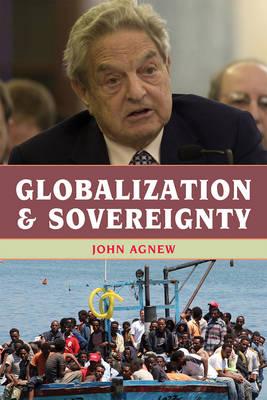Full Product Details
Author: John Agnew
Publisher: Rowman & Littlefield
Imprint: Rowman & Littlefield Publishers
Dimensions:
Width: 15.60cm
, Height: 1.40cm
, Length: 23.60cm
Weight: 0.372kg
ISBN: 9780742556782
ISBN 10: 0742556786
Pages: 216
Publication Date: 16 April 2009
Audience:
College/higher education
,
Tertiary & Higher Education
Format: Paperback
Publisher's Status: Out of Print
Availability: In Print

Limited stock is available. It will be ordered for you and shipped pending supplier's limited stock.
Reviews
In this wide-ranging, erudite book, one of America 's leading geographers has made a signal contribution to the study of sovereignty. . . . An absolute must read for anyone interested in international relations, comparative politics, or political geography.--Murphy, Alexander B.
This book provides useful, broader context for thinking about how varying regimes of globalization, sovereignty, and state control manifest though divergent bordering policies and practices. It is a very readable and accessible work that helps bridge the theoretical and methodological approaches of political geography and international relations. Oxford Bibliographies A persuasive critique of wide-ranging literature on the subject that stands alone for its scholarly sweep and theoretical originality. CHOICE The prominent geographer John Agnew in his new book addresses the old and persistent theme of states versus markets by arguing that state sovereignty has become more complicated rather then being eroded by globalization... This book offers some useful and interesting thoughts about globalization processes. Political Science Quarterly Agnew does not give himself to overstatement but proceeds systematically in both synthesizing key elements of the massive bibliography on the two subjects adjoined in his title and launching new paths in the debates on sovereignty and territory in the current phase of globalization. Agnew has emerged as one of the most lucid voices in political geography, globalization, and the reconfiguration of political space in our twenty-first century. By driving home his essential argument that globalization does not mean the end of states, space, or sovereignty but rather a continuity in the overlapping of multiple sovereign spaces, he provides yet another reasoned voice in what appears at times a millenarist frenzy in global studies. La Vie Des Idees In his book, Globalization and Sovereignty, John Agnew counters [the] notion of the end of geography and proclaims geography's continued significance... Agnew's book most definitely thoroughly and thoughtfully exposes the highly problematic and fairly popular simplistic categorizations of the effect of globalization on state sovereignty. Journal Of International and Global Studies In this wide-ranging, erudite book, one of America's leading geographers has made a signal contribution to the study of sovereignty... An absolute must read for anyone interested in international relations, comparative politics, or political geography. -- Alexander B. Murphy, University of Oregon Exposing the 'myths' that have obscured discussions of states and the relations between them, Agnew is able to offer a fundamental challenge to some of the more problematic diagnoses of the current global condition. Through a historical and political interrogation of the limits of political power, Globalization and Sovereignty provides a powerful account of just what is, and what is not, novel about the age we live in. -- Stuart Elden, Durham University
Author Information
John Agnew is professor of geography at UCLA and past-president of the Association of American Geographers.




